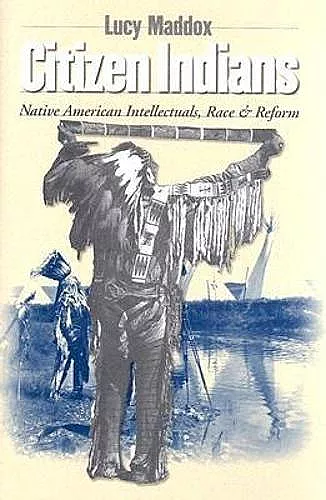Citizen Indians
Native American Intellectuals, Race, and Reform
Format:Paperback
Publisher:Cornell University Press
Published:24th Jul '06
Currently unavailable, and unfortunately no date known when it will be back
This paperback is available in another edition too:
- Hardback£51.00(9780801443541)

By the 1890s, white Americans were avid consumers of American Indian cultures. At heavily scripted Wild West shows, Chautauquas, civic pageants, expositions, and fairs, American Indians were most often cast as victims, noble remnants of a vanishing race, or docile candidates for complete assimilation. However, as Lucy Maddox demonstrates in Citizen Indians, some prominent Indian intellectuals of the era—including Gertrude Bonnin, Charles Eastman, and Arthur C. Parker—were able to adapt and reshape the forms of public performance as one means of entering the national conversation and as a core strategy in the pan-tribal reform efforts that paralleled other Progressive-era reform movements.
Maddox examines the work of American Indian intellectuals and reformers in the context of the Society of American Indians, which brought together educated, professional Indians in a period when the "Indian question" loomed large. These thinkers belonged to the first generation of middle-class American Indians more concerned with racial categories and civil rights than with the status of individual tribes. They confronted acute crises: the imposition of land allotments, the abrogation of the treaty process, the removal of Indian children to boarding schools, and the continuing denial of birthright citizenship to Indians that maintained their status as wards of the state. By adapting forms of public discourse and performance already familiar to white audiences, Maddox argues, American Indian reformers could more effectively pursue self-representation and political autonomy.
Lucy Maddox describes the efforts of Native intellectuals to transform the public's conception of the Indian. She centers her discussion around the Society of American Indians (SAI), a group of diverse Native activists who held disparate views on how Indian people ought to accommodate and contest majority conceptualizations.... Some have contended that the SAI's efforts were futile, and they point to the dated stereotypes that remain embedded in American culture. To a considerable extent, Maddox disagrees with this argument in her excellent work.... Perhaps more important, Maddox adds in her conclusion, is the fact that American Indian thinkers of the Progressive era paved the way for their intellectual descendants' exploration and experimentation in the 1960s and 1970s.
-- Tim Alan Garrison * North Carolina Historical Review *Maddox's book... demonstrates that Native Americans were actively engaged in trying to create a place for themselves as both Indians and Americans during the Progressive era, and in doing so she has filled in some... missing pages in our national textbook.
-- Steve Conn * American Historical Revi- Winner of A 2006 Choice Magazine "Outstanding Academic Title.
ISBN: 9780801473425
Dimensions: 229mm x 152mm x 16mm
Weight: 454g
218 pages